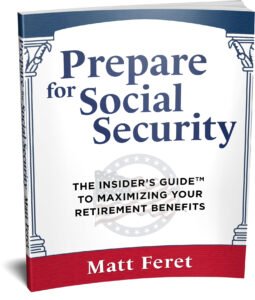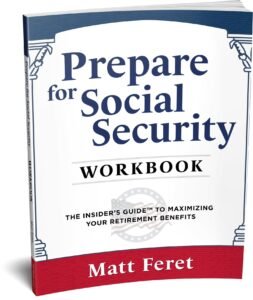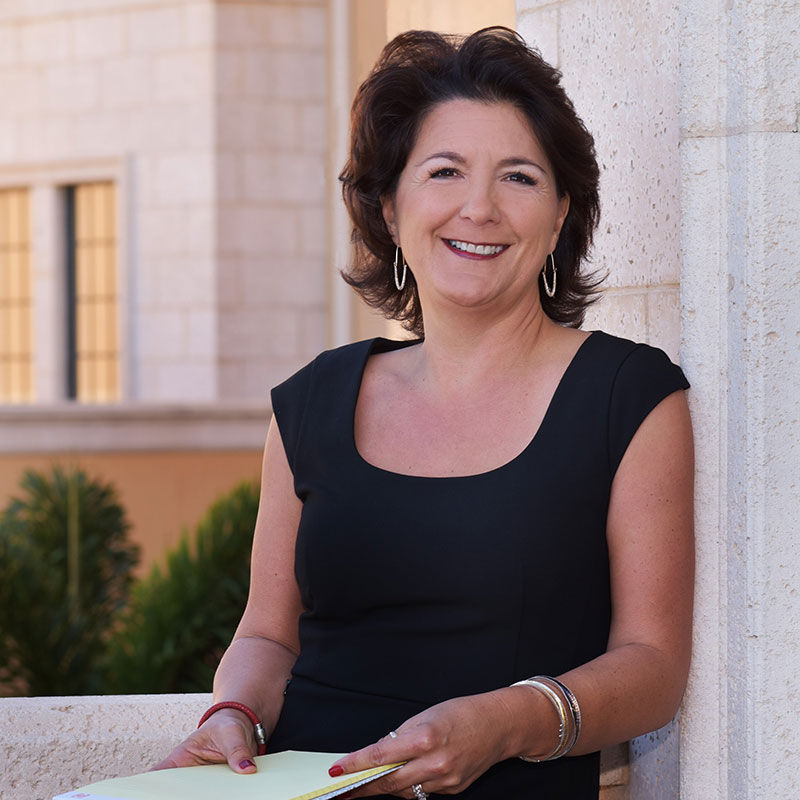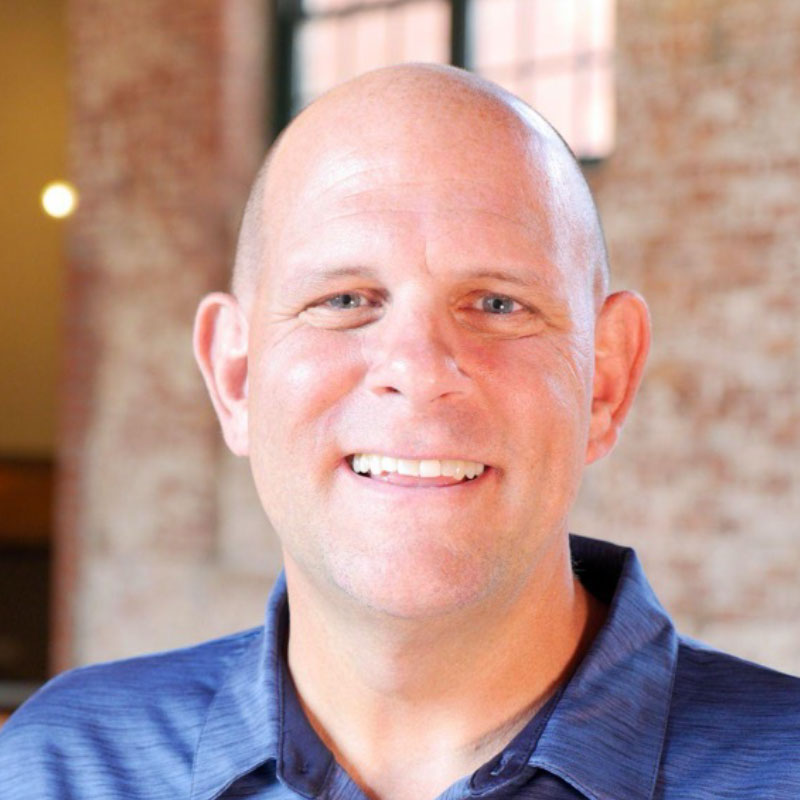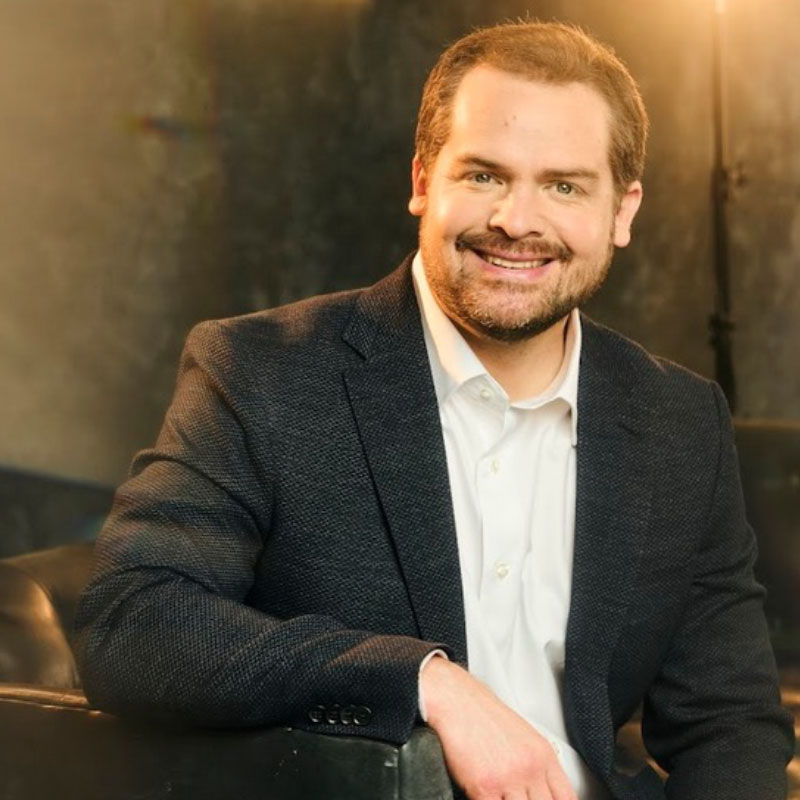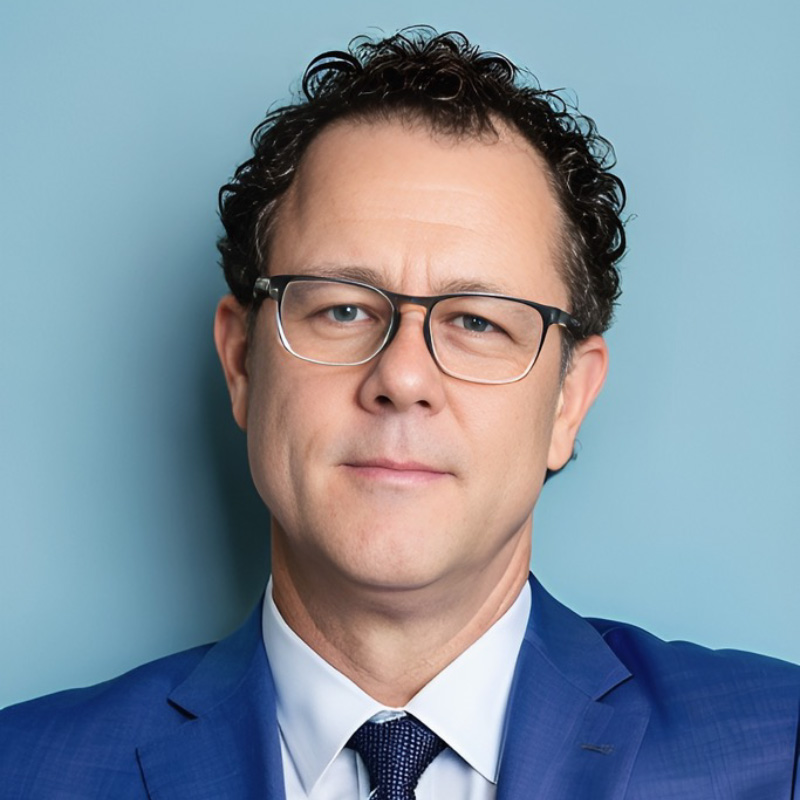#002
Share This:

“Not many people (have) a Long-Term Care (insurance) claim and need help with activities of day living for three and a quarter years, and then suddenly like, "Yep, I'm good. I can take care of myself."
-Rob Pykosz
Rob Pykosz is a Senior Vice President at Lenox Advisors and works with both corporations and high net worth individual clients. Rob specializes in comprehensive estate, insurance, asset allocation, employee benefits strategies and executive carve-out programs. He graduated from the University of Illinois at Urbana-Champaign with a degree in Finance. During his time there, he was University of Illinois’s Men’s Track & Field Varsity Letter Winner and Men’s Cross Country Varsity Letter Winner. He holds FINRA Series 6, 63 and 65 Registrations.
This episode will give you an insider’s view into his thinking around different types of financial advisors, how Medicare interacts with wealth management, income planning for retirement and long-term care alternatives.
Listen to the episode on Apple Podcasts, Spotify, Deezer, Podcast Addict, Stitcher, Google Podcasts, Amazon Music, Alexa Flash Briefing, iHeart, Acast or on your favorite podcast platform. You can watch the interview on YouTube here.
Brought to you by Prepare for Medicare – The Insider’s Guide book series. Sign up for the Prepare for Medicare Newsletter, an exclusive subscription-only newsletter that delivers the inside scoop to help you stay up-to-date with your Medicare insurance coverage, highlight Medicare news you can use, and reminders for important dates throughout the year. When you sign up, you’ll immediately gain access to seven FREE Medicare checklists.
Quotes:
“You don't want to let the tax tail wag the dog. So, obviously if you're 64 and you're going to make a million dollars, the right bet isn't to say, "Hey, I should only make $200,000 so I can have a lower IRMAA charge."
— Rob Pykosz
“Whatever your legacy goal is, whether it's to kids, family, philanthropy, philanthropic endeavors; The real risk is what if something goes wrong and you're not able to leave it (to your heirs), or you don't do proper planning and half your money goes to the government form of tax.”
— Rob Pykosz
“Think how many times taxes change, not every one, or two, or three years, but over 10, 15 year cycles is different. Political affiliations come into play, how do taxes play out? So, what buckets are you using that are going to be taxable now, taxable down the road, tax deferred, and when do you start taking out which one?”
— Rob Pykosz
"Am I going to be okay?" People often will ask us that. "Hey, am I going to be okay if the house burns down?" Well, hopefully you have homeowner's insurance. "Well, am I going to be okay if my spouse passes away early, if I have a Long-Term Care event, if I have a big healthcare cost?" Obviously, Medicare very important there. There's really a number of risk factors that can occur.”
— Rob Pykosz
#002
Selected Link from the Episode:
Full Show Transcript:
#2: Medicare and financial planning with Robert Pykosz, Senior Vice President at Lennox Advisors.
00:00 / 30:13
LEGAL CONDITIONS:
Matt Feret/MF Media, LLC owns the copyright all content and transcripts of The Matt Feret Show, and mattferet.com with all rights reserved, as well as right of publicity. All rights reserved.
No part of this publication may be reproduced or transmitted in any form or by any means, electronic or mechanical, including photocopying, recording, or by any information storage and retrieval system without written permission of the publisher, except for the inclusion of brief quotations in a review. You are welcome to share the below transcript (up to 500 words) in media articles, on your personal website, in a non-commercial article or blog post, and/or on a personal social media account for non-commercial purposes, if you include attribution to “The Matt Feret Show” and link back to the mattferet.com website.
WHAT IS NOT ALLOWED: No one may copy any portion of the content or use Matt Feret’s name, image or likeness for any commercial purpose or use, including without limitation inclusion in any books, e-books, book summaries or synopses, or on a commercial website or social media site (e.g., Facebook, Twitter, Instagram, etc.) that offers or promotes your or another’s products or services.
DISCLAIMER: This publication is in no way sponsored, associated, authorized, approved, endorsed nor, in any way affiliated with any government agency, company, trademarked names, or other marks. Any such mention is for purpose of reference only. Any advice, generalized statistics, or opinions expressed are strictly those of the host and the guest. This publication, The Matt Feret Show nor the mattferet.com website is meant to replace the sage advice of healthcare, insurance, financial planning, accounting, or legal professionals. You are responsible for your financial decisions. It is your sole responsibility to independently evaluate the accuracy, correctness or completeness of the content, services, and products of, and associated with this publication. The thoughts and opinions expressed in this publication are those of the host and guest(s) only and are not the thoughts and opinions of any current or former employer of the host and guest(s) nor is this publication made by, on behalf of, or endorsed or approved by any current or former employer of the host and guest(s).
Matt Feret (00:14):
Hello everyone. This is Matt Feret, author of the Prepare for Medicare book series and welcome to another episode of the Feret Show, where I interview insiders and experts to help light a path to a successful retirement. My guest today is Rob Pykosz. Rob is a financial advisor for Lenox Advisors, a financial planning firm that specializes in asset management, insurance, and risk management, as well as employee and executive benefits.
Matt Feret (00:40):
IRMAA, I-R-M-A-A, stands for the income related Medicare adjustment amount. That's a fancy phrase for if you're rich, wealthy, or just well off, you'll likely pay more for your Medicare Part B and Medicare Part D coverage. No one likes IRMAA. Even though you're normally eligible for Medicare at age 65, IRMAA planning should start as early as 63. It's where Medicare meets accounting and financial planning. This episode will give you a bit of an insider's view into IRMAA and Medicare planning, long term care insurance. And of course, financial planning, with an eye towards retirement timing and income requirements. Rob's opinions are his own and in no way reflect those of his employer, enjoy.
Matt Feret (01:25):
Rob, welcome to the show.
Rob Pykosz (01:26):
Awesome. Thanks a lot for having me, Matt.
Matt Feret (01:28):
Tell everybody what you do, where you live, how you help people and how long you've been doing this.
Rob Pykosz (01:35):
Absolutely. Again, Rob Pykosz. I live in Chicago, Illinois, and work in the city itself. I am a financial advisor and I've been doing it a little over a decade now, working with a wide variety of clients in different situations.
Matt Feret (01:49):
Let's first talk about the intersection of Medicare and retirement. That's something that's close to your heart, and obviously something that's close to my heart. Talk about it a little bit.
Rob Pykosz (02:00):
Yeah, absolutely. Obviously, you're really the Medicare expert here, but just right when I hear people enter in retirement, I always think of all these risks and obstacles you have to think through. Obviously healthcare is one of the largest ones and Medicare is really the cornerstone of healthcare when you enter into retirement. As your book, which I've obviously really enjoyed, has alluded, it's not quite so simple as just finger in the wind which one feels right for a Medicare plan.
Rob Pykosz (02:25):
There's also lot of things that people need to think about in terms of Medicare from a financial standpoint. And you and I were speaking prior, I think of things like IRMAA which is effectively almost like .., It's called a surcharge. I don't know if that's actually the right term, but additional money you have to pay if you're in some higher income brackets for Medicare.
Matt Feret (02:42):
Yeah. Nobody likes her. Nobody likes IRMAA.
Rob Pykosz (02:44):
Exactly. But she's one of those things that some good strategy, you can sometimes put yourself in a much better situation, save some money on Medicare costs, just by being a little bit forward thinking and being proactive as opposed to reactionary. So, as a financial advisor, those are some of the early things when we started hearing Medicare, how can we educate people as they're heading into the retirement years of what to start thinking about, how to start budgeting for it and what it's going to look like. It's a great benefit, without Medicare retirement, wouldn't even be a fathomable goal for a lot of people. So, I think it's really just understanding how to utilize it and take advantage of the pieces that you already have in place.
Matt Feret (03:18):
Yeah. You bring up an interesting point. IRMAA, when you turn 65, you're eligible for Medicare, they look back two years. And at that point it's the water under the bridge. Your income's going to be what your income's going to be if you're reactive. But I think what you're saying is there's an opportunity to be proactive. But isn't that normally what your accountant does, or if you do your own taxes, you do? The lead up to age 65, what's important? People think, "Well, 64, I pay attention to Medicare and I figure out what plan I want three months before, or four months before," and start paying attention to it 64, but that's not really when to start. Is it, when you think about IRMAA?
Rob Pykosz (04:01):
Yeah, absolutely right. One expression I like is you don't want to let the tax tail wag the dog. So, obviously if you're 64 and you're going to make a million dollars, the right bet isn't to say, "Hey, I should only make 200,000 so I can have a lower IRMAA charge." So, it's going to be what it is. But when you're in those last couple years of work, and really your early retirement years and you have these different pools of money you could draw from. You need about social security, you have your 401ks, potentially general investment accounts, maybe it's just cash on hand.
Rob Pykosz (04:32):
And you say, "Now that I'm retired, where is my income coming from? " It's understanding which pool of dollars you want to utilize, to effectively have the right level of taxable income. If you're going to be right on a threshold, and it could be one of these scenarios where you say, hey, maybe it's a tail end of the year. It's December. You want to pull out a little extra money to buy Christmas gifts for the family, or what have you, it might be the difference of pulling out of your 401k, versus using some cash on hand and taking the 401k distribution in January instead of December. Well, that might be the couple thousand dollars difference to hit the next bracket for IRMAA.
Rob Pykosz (05:08):
Well, obviously to your point, if you're doing your own taxes, or even with your accountant, that's all reactionary. You're adding up all the numbers after it's said and done the following spring to see what your total taxable income is. Well, if you were a little proactive, you might have been able to say, "Hey, maybe I don't pull from this bucket of money right now, and wait a little bit longer, keep my total income lower, have a lower your IRMAA rate." At the end of the day, you have the same amount of money. This isn't saying, "Don't buy Christmas gifts for the grandkids." What this is really saying is let's be strategic of where you're getting revenue from, because that could put you to lot stronger financial place.
Matt Feret (05:41):
Thank you. Good points. Good advice. Let me rewind a little bit before say 63, 64, 65, into other financial topics around "retirement." That means different things to different people. Some people are still working in retirement, some people are consulting, some people are truly feet up and waiting. So, talk to me about when does planning for retirement ... I know it starts as soon as you start earning money, but really when we're talking about financial planning for retirement, up to that 65/67 of social security, walk me through when that starts and how to go about thinking of that through the years and potentially decades.
Rob Pykosz (06:28):
Yeah, absolutely. And I think at the end of the day, if you're 62, 63, 64, you can really go on a phase, where you're saying, "I'm going to budget better. I'm going to save more and that can certainly help your position." But a lot of it is, as you said, it's, hey, start funding your retirement accounts, doing some of the right things in your 20s, 30s, and 40s. But assuming you get to your later 50s or your 60s, and most of the hay's in the barn, so to say. At that point, it's, "Hey, what's my retirement going to look like?" And that's where you work with somebody, there's a lot of tools online. There's a lot of ways you can do it, calculate, "Hey, what's a realistic income that I think I can generate in retirement? If everything goes well or pretty well, how much can I draw down?" Whether it's in my 401k, from social security, from pensions, from different investment retirement tools.
Rob Pykosz (07:15):
But then also understanding you more so it's like, "Am I going to be okay?" People often will ask us that. "Hey, am I going to be okay if the house burns down?" Well, hopefully you have homeowner's insurance. "Well, am I going to be okay if my spouse passes away early, if I have a long term care event, if I have a big healthcare cost?" Obviously, Medicare very important there. There's really a number of risk factors that can occur. So, I always tell people the fancy term is your probability of success in retirement. Are you going to be okay? What's your chances? So then you really want to understand what could throw off my plan.
Rob Pykosz (07:50):
So, it could be something like inflation, which we keep hearing right now. What if the gallon of milk and loaf of bread just get more expensive. Well obviously, if all your money's in cash tucked under the mattress, inflation could be a real risk for you. What's probably the solution? Having some market exposure. Letting the market outpace inflation puts you in stronger position. So, inflation would be a risk. Obviously taxes. In this environment, potential taxes changes occurring. People say, "Well, what if taxes go way up?" Well, then if that concept of using tax efficient tools, things of that nature.
Rob Pykosz (08:22):
It could be things like longevity risk. What if you live a really long time? How does that play out? What if you spend down the money in your general accounts, like your 401k, or your savings? There's things like social security, obviously, that theoretically don't run out. As long as you're alive, you can keep collecting on that, or pension benefits. So, there's all different things and items that we want to think through. What it really comes down to is some people might be able to take every risk off the table. Other people might not be able to really do much of anything except say, "Hey, here's the government benefits I paid into and I'll take what I can get from them."
Rob Pykosz (08:59):
But I think it's the vast majority of people that fall in the middle and they say, "I can probably take a good amount of risk off the table, but I don't really know where to start." So, I'd start thinking, if you had no health insurance, healthcare's going to be the biggest risk. "Okay, great. I have Medicare. How do I optimize that, and take care of my healthcare cost?" In conjunction with that would be long term care risk. That's often a big risk.
Matt Feret (09:21):
I was going to pivot to long term care that. I've always heard, and I don't know this, but I've always heard by the time you need it, it's too late. It's almost like life insurance. By the time you think about it, on your deathbed, it doesn't really help then, does it? What is the right time to start shopping for LTC, or long term care insurance? Is that the right product? Premiums are high. It's not a cheap product at all. It's not like a standalone dental plan if you need dental insurance. It's very expensive. Are there alternatives? Are there alternative approaches? What about long term care insurance? And when do you even start thinking about that? And when is it too late? A lot of questions for you there, Rob. I don't know if I'll remember them all, but try.
Rob Pykosz (10:12):
I think we're going to like two or three other podcasts outside of this, just to get through those questions. But no, what I would say is there's no blanket right answer. Except first understanding, acknowledging there is a risk. What is the risk? Long term care risk is simply, "Hey, what if I have a big an event that requires skilled care?" The simplest way to view it. And a lot of people think, "I'm Superman, nothing's going to happen to me. I'm not worried about it." Or, unfortunately one of the common things people say is just put me out on a rowboat and row me out there and don't worry about it anymore."
Rob Pykosz (10:43):
The reality is that's what people joke of, but your loved ones aren't going to do that. [crosstalk 00:10:47] They're going to do what they can to take care of you. And unfortunately, often to the detriment of the other spouse. Tons of statistics out there that show it's not just the person with the long term care event that suffers, but it's all also the spouse that really suffers both physically, emotionally, and also financially. Where you have spouses that would have otherwise been okay, and even if their spouse had passed away quickly, they would be all right. But they end up spending down a huge portion of their assets.
Rob Pykosz (11:13):
Maybe make math simple, they said, "Hey, I was going to live on 10 grand a month. And we were going to have comfortable retirement between the two of us at that income threshold." And then suddenly one of the spouses has a care event, they start spending down 20 grand a month, because it's 10 grand a month for the mortgage, the life, everything you're doing, and another 10 grand a month for the care cost. Well, gosh, that could train down what would've been an appropriate amount of assets environment could get trained down.
Matt Feret (11:38):
Let me ask you then this. So let's take them in age bands. Let's say I'm listening to this, watching this, 45 to 55. Well, let's say I'm 56 to 64, in another age band. What's the approach, or what should I be thinking about in those two age bands?
Rob Pykosz (11:56):
Good questions. All right, so the first thing is, what does my potential picture look like? And then what is the theoretical risk. If you said, "Hey, I'm working to get by. I owe money back in taxes. I already took a 401k loan to help my kids at school. I have all these things." Well, frankly, long term care, isn't the largest risk for you. Your other risks are probably things like saving money long term. But if you say, "Okay, I'm not in that situation. And I also am not Bill Gates, or Warren Buffet where I have so much money I can truly purely self-insure," Well, then you're in situations, "Okay, how much of the risk exists for me? And how would I consider taking it off the table?"
Rob Pykosz (12:35):
And there's a number of different strategies. You could use traditional standalone long-term care products, which is you basically, you pay a premium and you get a benefit if you were to have a long-term care event. That marketplace has really shifted over the years, not because they were bad products, but because the products were better than people realized. The insurance companies had thought, "Hey, we're going to price these things to be lower cost, because people will lapse and they'll stop paying the premiums, and we don't pay any claims, or there won't be as many claims."
Rob Pykosz (13:04):
And what they realized was long-term care facilities do a very good job of keeping people alive. So, suddenly these claims last a lot longer, and these insurance companies really got hit hard. So, a lot of insurance companies, I believe all of them at this point effectively have had to raise premiums on insurance contracts. You're paying more than what you might have, 10, 15, 20 years ago in the long term care market, which led to some insurance carriers and companies coming out with some hybrid products, that people in their 40s and 50s have found a lot of value in it, they say. So rough math, don't quote me exactly on this, but I believe the average long term care event can last roughly a little over three years. And they also know statistically that the vast majority of long term care claims end in death. So insurance companies said, "Well hey, if that's the case ..."
Matt Feret (13:52):
Wait a minute, was that a joke hidden in a statement? The vast majority of long term care claims end in death? Is that like saying the vast majority of lives end in death?
Rob Pykosz (14:00):
That is very true, but it's rare that somebody goes on a long term care claim and says, "Hey ..." And it probably [crosstalk 00:14:06]
Matt Feret (14:06):
Oh, I gotcha. So, you're saying it's very rare that someone goes a long term care facility, or a claim and comes out and says, "I'm all better."
Rob Pykosz (14:12):
Not many people go on a long term care claim and need help with activities of day living for three and a quarter years, and then suddenly like, "Yep, I'm good. I can take care of myself."
Matt Feret (14:20):
I gotcha. I gotcha. I'm sorry. Well, there still may have been a joke buried in there.
Rob Pykosz (14:25):
I'm sure we could find one for editing. That's why I said, "Don't quote me." But no, when we think about that, insurance carriers are very smart. What they said is, 'Hey, if we know the average payment lasts this long, and the average outcome is somebody passing away after a long term care claim," they said, "well, what if we have these insurance products that exist that are effectively life insurance?" You pay money into them, they're permanent product, not a term product, which in separate conversation, but pay premiums into a permanent product. And if at some point or another, you needed money for a skilled care claim, instead of only allowing you to access the cash value accumulated in insurance product, they're actually going to leverage and borrow up against the death benefit. And some carriers, depending on what the product structuring, you can get virtually all of your death benefit in advance.
Rob Pykosz (15:09):
So, almost view it as they're going, "Hey, if we know at the end of the day, we're probably by odds going to have to pay the death benefit claim to your surviving spouses., what we'll let you do is borrow against it sooner." So, that's another very efficient way of mitigating long term care risk, where you're not just purely paying premiums towards long term care, you're building an asset that can be used for a couple different ways. So, I think that that's what consumers should start to think of about is, "Hey, what tools and products exist that can check multiple boxes and take care of multiple pieces?"
Rob Pykosz (15:37):
If you think of longevity risk, or what if one spouse passes away and then the other spouse lives a really long time? Well, if, if you have two spouses, one passes away and you lose their pension benefit, or you lost a portion of their social security, or whatever it may be, well, suddenly you find yourself in a situation that, that they were comfortable with both pensions paying out, but now that you only have one, maybe you're worse off. Well, the way to optimize that would be to have some sort of a permanent insurance contract.
Rob Pykosz (16:05):
So, you see this often with teachers and firefighters, police officers, where they have pension benefit and you have a choice. They say, you can take one pension option where you get more money, but it's only on the course of your lifetime map. The other pension option is you get a little bit less money every month, but if you pass away, your spouse gets your full pension, or 50%. Or even a third option sometimes, which might be, Matt, if you passed away, your spouse gets it. But if you and your spouse both pass, your kids get it for a minimum period, a period certain type payout.
Rob Pykosz (16:38):
Well, obviously the tradeoff is, you get less money if you take the more guaranteed options. So again, if you had some tools in place that can check multiple boxes, you find yourself in a stronger financial position that you say, "I'm comfortable taking the single only payout out, knowing that if I do pass away early, my spouse's retirement bucket gets refilled with the insurance payout." If I don't pass away, they can potentially take care of long-term care risk. So, I think that people need to think through what tools are available, just really educate themselves on how the market looks at different life points.
Matt Feret (17:11):
So just like almost every topic in Medicare, in retirement, certainly in Medicare, just like every topic, it depends. It's all an individualized choice, which means there's a bunch of different ways to go about doing it. But if I had to back out of the individual situational piece and go back into general buckets, you're saying there's a self-insure option, which is if you're Warren, or Bill, you're fine. But if you are drowning in debt, you're into debt up your eyeballs and you have a lot of liabilities, self-insurance is literally the default, which is pray. "I pray, nothing happens." And if something happens, figure it out.
Matt Feret (17:56):
Number two is, buy a long-term care insurance policy, traditional, and number three is some hybrid approach of using life insurance. So I have those three.
Rob Pykosz (18:05):
Yep. [crosstalk 00:18:07] Exactly.
Matt Feret (18:08):
Okay. Thanks for that. And thanks for the primer. Talk to me about other considerations. You have six core tenants that you talked about. What are they?
Rob Pykosz (18:22):
We talked about inflation; Just keeping pace with money. How do you counter that? Well, having some money in the market. The opposite risk would be market risk. What if you have too much money in the market and the market goes way down, how are you okay there? So, a lot of these pieces you'll see, they work hand in hand. You can avoid inflationary risk of market, but we have market risk as well. We have healthcare in medical cost risk, which obviously Medicare and other health coverage.
Rob Pykosz (18:51):
We have long term care risk, which stacks in tandem with medical risk, so we now hit down four of them. We talked about longevity risk. What if you live too long and outlive your money? That's where you have things, whether it's annuities, social security, pension payments, things that are guaranteed lifetime income streams. And then probably the final one will be tax. So, what do taxes look like and how do we best position ourselves entering into retirement? So, whether it's in your 40s, or 50s, or 60s but also your 70s, 80s and 90s. Think how many times taxes change, not every one, or two, or three years, but over 10, 15 year cycles is different. Political affiliations come into play, how to tax play out? So, what buckets are you using that are going to be taxable now, taxable down the road, tax deferred, and when do you start taking out which one?
Rob Pykosz (19:41):
And Then the final risk actually would probably be legacy risk. Which is people saying, "Hey, I worked my whole life."
Matt Feret (19:45):
Wait, what's it called? Say it again.
Rob Pykosz (19:47):
Legacy risk.
Matt Feret (19:48):
Legacy risk. I thought you said latency risk. I was like, "I don't know what that is? No, legacy risk. Okay, well, I still don't know what that is. What is that?
Rob Pykosz (19:54):
Well, let's you work your whole life and you say, "Hey, you know what? I did pretty darn good." And maybe some of the other risks we talked about, don't become factors. You didn't have a long term care event, and you insured properly. Your money was in the market and the market didn't go down at the wrong time, so you did all right. At the end of the day, you say, "There's some money left over, and I want it to go to my kids." Some people say they don't even need it to go to their family, or their heirs. Maybe you say, "Hey, I want it to go to a charity. I want the football stadium names after me at the high school." Whatever it is. Living vicariously.
Matt Feret (20:24):
Football stadium at the high school. Yeah, that would not be what I would want to do with that.
Rob Pykosz (20:30):
Cue Bruce Springsteen, Glory Days.
Matt Feret (20:32):
Yeah. Well, cue automatic losing record for the next decade, if we're talking about the football stadium, but go ahead. Keep going.
Rob Pykosz (20:39):
Whatever your legacy goal is, whether it's to kids, family, philanthropy, philanthropic endeavors; The real risk is what if something goes wrong and you're not able to leave it, or you don't do proper planning and half your money goes to the government form of tax. Now, some people are fine with it. They say, "Hey, look, if I pass, and half goes to tax, and half goes to my family, I'm fine with it."
Rob Pykosz (20:59):
Other people say, "Hey, I'm at a higher income level, or net worth level, maybe I want to do some planning to make sure that my money passes tax free to my heirs if I can." So, those pieces. So, I think those are really the main risks. They all really work in tandem. There's a lot of strategies that check multiple boxes, just like, as you head into your Medicare years, when you're 63, 64, there's some pieces of planning that you can do. I think there's probably more planning that can be done from an overall retirement strategy before you enter your retirement years, and probably a little less that you do actually in those final years.
Rob Pykosz (21:33):
A couple years you start retirement, you're not really changing your planning. Whereas Medicare's really important when you're 63, 64, to be educated, start getting things in place, and then really making the right decisions at 64, 65, 66, which is why I think your book works really well. Because, when you're 44, you don't need to look at it. And by the time you're 84, it's not really as big of a deal. You just want to keep refreshing on it. So, educating yourself in those couple years leading up to, and then first years while you're in it.
Matt Feret (21:58):
So, talk to me about the types of financial planners out there in the universe. I've heard of fee only, commissionable, I'm sure I'm not getting these right, but there are different types of planners. What are they? And pros and cons, if you've got them and your perspective.
Rob Pykosz (22:20):
Yeah, there's a number of ways that people can be compensated out, as you joked, consultant or advisors is about generic and ambiguous of a term as you can find.
Matt Feret (22:31):
My neighbor advises me on my lawn all the time.
Rob Pykosz (22:34):
Exactly. Right. That pro bono advice.
Matt Feret (22:37):
Not necessarily solicited. It's just free.
Rob Pykosz (22:40):
That might just be trying to give you a hint of, it's time to get the lawn [crosstalk 00:22:44]
Matt Feret (22:44):
I know it is. His is a lot greener.
Rob Pykosz (22:47):
Not everyone has a green thumb. But, I think when it comes to financial planning, getting advice, financial advisors, breaks into a bunch of different categories. And I think the first thing you can really view it as is you have people on the insurance front and you have people on the investment in the [inaudible 00:23:02] front. And years ago there used to be a divide of who could do what. You weren't allowed to be a bank, couldn't also be an insurance company, couldn't also be an investment house. Now they can. These things can intermingle. And for a while, I think people really were silo’d. You'd have people that really focused on insurance and they could help you with some wealth stuff, or people that were asset managers, and they'd sell you insurance if you asked for it. Or, people that were bankers and were sourcing the mortgage. And if you said, "Hey, can you help me invest money? They'd say, "Sure," and send you down the hall.
Rob Pykosz (23:33):
I think what you really want to do, just like our conversation of overall strategy, is have people that really try and encompass all of those pieces. There's some products that exist that are really solely commissionable. So insurance, for instance, is a commissionable product. Virtually all insurance contracts are state regulated. When you look at life and disability, long term care insurance, so they actually have to be approved by a state regulator and there's a commission built into it. So, really what you're doing is you're getting advice from the person who's effectively trying to sell you the product and then they're going to be compensated from the carrier.
Matt Feret (24:04):
It's like an insurance agent for Medicare. The price is the price is the price, it's just if there's an agent involved, that agent will get compensated by the carrier, not anyone else. But the price doesn't change if you buy it direct from the carrier, or you buy it direct from a professional expert Medicare insurance advisor. Same thing as what you're saying.
Rob Pykosz (24:24):
Always tell our clients, "Hey, whether you get it from me, you go to the carrier directly, you go to 1-800-INSURANCE, you're going to get the same product at the end of the day. It's really just on getting the advice and the consultation along with it." That's the insurance front. On the investment front, really two main ways if you're working with somebody. It's either going to be commissionable, where if you think of the old days, which don't really exist as much, somebody's standing on the stock floor, saying, "Buy sell," and they're yelling, there's papers flying all over it. It's The Wolf of Wall Street.
Matt Feret (24:51):
Makes good TV, right?
Rob Pykosz (24:53):
Exactly. Makes good TV, not really what happens as much. Most people are behind computers, but buying and selling securities, there could be a commission associated with that, different types of share classes. That used to be really the main way things happened. It's really evolved. You don't see nearly as much of that in the industry anymore, but it certainly still does exist, but not quite as common.
Rob Pykosz (25:14):
The other end of the spectrum would be fee-based advisory services where you pay an advisory fee. So, typically it's on assets, under management. Make math simple, you're managing a million dollars at a 1% advisory fee. That means that they're taking 1% of the million dollars, or 10,000 a year, typically you see it bill quarterly to do advisory work, so that is built in. To keep in mind, there is also cost associated with whatever funds you are in. But typically in that scenario, the advisor isn't going to be making money on both end. So, they're not making money when they buy and sell different pieces. Their job is to act as a fiduciary and manage money to the best of your benefits. There's a little bit higher suitability standards there. And there's suitability standards on the insurance front as well. They can't recommend you get a bunch of products that you don't need.
Rob Pykosz (26:04):
And then, there's fee-based consulting. So, you can also go into an arrangement where you're not associated with any product, or investment management. Where you just say, "I don't want you managing my money. I'm comfortable going to whatever provide, E-Trade, Schwab, Fidelity, on my own." And I've already bought all the insurance, but I don't want to buy the insurance, or I'm not able to. But what I want is somebody there that's tying it together and I'm going to pay you an advisory fee to say, "You're going to help me," maybe it's meet twice, three, four times a year and say, "Hey, what's my budget looking like, what's my cashflow? Where should I be pulling money? From what tools should I be utilizing? How do I think those pieces?"
Rob Pykosz (26:40):
So, when it comes to getting compensated, I think that advisors insurance professionals can be compensated by commissions, by advisory fees, commissions, whether it's on insurance, or on the investments, advisory fees for assets under management, or advisory fees for just fee-based consulting for planning. So, a number of ways, I think it's always good just to ask. Anytime I speak with clients, I'll typically joke and say, "Hey, I'm recommending you go," in my situation, "go get your legal documents done. You need a will, you need powers of attorney. You need these basic documents." And I'll just joke and say, "I'm going to push you really hard, because I don't have any skin in the game here. I just want you to do it because it makes sense."
Rob Pykosz (27:21):
And I always joke I'd probably be a bad sales person, because I get them to do their legal planning before I get them to do the other pieces that I do get compensated on. On the [crosstalk 00:27:30] I'll say, "Hey, you need, for instance, you need long term care coverage. Here's the three products that are available. This is what I'd recommend." And I'll say, "Hey, I'm going to make a commission on this. This vehicle, I think we should use whatever carrier it is. And I'm going to make the commission from the carrier. The price your seeing is you're all in cost. You don't owe me anything additional."
Matt Feret (27:49):
Yeah. So, it's disclosure and finding someone who is open, honest and just frank with the type of advisor they are, the fee structures sounds like it's really important.
Rob Pykosz (28:04):
Yeah. And as a consumer, it's well within your rights to ask. And I think that there's a lot more disclosure and requirements now than there were even a little over a decade ago when I started in the industry. And certainly more than 20, 30 years ago. And I think that overall it's for the better it makes, it does make things a little bit more painful, to have to go through a bunch of closure language and you get all these documents. But at the end of the day, it really is meant to say, you should be able to ask your advisor, "Hey, how are you getting compensated? And what am I paying you? The dollars that I'm giving you and you're managing, that are occurring, what's going where?"
Rob Pykosz (28:38):
And the advisor should be able to very easily answer that. And I think that there's nothing wrong with that, because typically people find value. It's very rare a client will say, "I didn't see a value," or you didn't provide enough service to warrant the fees, commission, whatever it is that you receive, typically. It's like, "I get it. You brought a lot of value and I'm okay with it."
Matt Feret (28:59):
Fair enough. It's been a fantastic chat. Thanks so much for taking the time to do it today. How do people find you on the internet and contact you for more information?
Rob Pykosz (29:12):
Yeah. Absolutely Matt, It was my pleasure, and thank you for having me on the program. Easiest way to find me is via email. It would be .. I don't know if you can flash it on screen, but it's ...
Matt Feret (29:22):
I can. Oh yeah. We can do crazy things with this, sure. Whatever you want.
Rob Pykosz (29:27):
You, millennials.
Matt Feret (29:29):
Yeah. That's it. The millennials. Clearly the hair is tipping you off to my status.
Rob Pykosz (29:36):
Oh yeah, hairs or lack thereof in my case. But it would be my email, which would be R and then my last name, P-Y-K-O-S-Z. So, Rpykosz@Lenoxadvisors.com, or on the Lenox Advisors website is another way to find me. So, I'm sure you can toss them on the screen, but happy to connect and be a resource.
Matt Feret (29:56):
Rob, thanks a lot, man.
Rob Pykosz (29:57):
Absolutely, man. Thank you.
Matt Feret (29:59):
Be sure to connect with Rob on LinkedIn, or at lennoxadvisors.com. Click the find a financial advisor tab and the upper right hand part of the screen and type his name in. His last name is spelled P-Y-K-O-S-Z.
Matt Feret (30:13):
Please also subscribe to the Matt Feret show YouTube channel, and please help out rate the show on iTunes, or your podcast platform provider of choice. You can sign up for the Prepare for Medicare Newsletter at prepareformedicare.com. You can also check out the show notes and episode links at mattferet.com. And of course, don't forget to buy my book for you or a loved one. Prepare for Medicare, The Insider's Guide to Buying Medicare Insurance, is on sale at Amazon and other find retailers near you. Until next time, to your well wisdom and wellness, I'm Matt Feret, thanks for tuning in.


